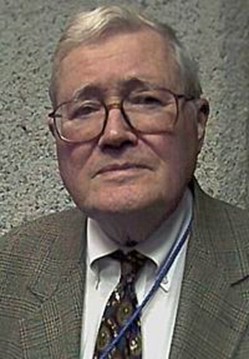In the early 1960s, Joan Robinson argued with a colleague about the great economic success of Korea. It was a confusing debate until a listener realised Robinson was talking about North Korea and the other about the South. Soon after this discussion, there was a military coup in South Korea.
Gordon Tullock is an interesting writer on South Korea and the consequence of this military coup saying that:
- Syngman Rhee was a socialist who knew nothing of capitalism when he took over after the Second World War.
- To make his country look capitalist to the Americans, Rhee gave many previously Japanese owned industries to his friends as monopolies.
When General Park overthrew Syngman Rhee in 1961, he knew no economics, but Park knew the bureaucracy was filled with Rhee’s cronies, so he fired them all. Before a new lot of cronies got properly in place, the economy boomed.
Tullock considered that South Korea became a prosperous, open economy as a by-product of this political purge. At the time of the 1961 coup, Tullock specialised in China and Korea. He was formerly a diplomat to both countries in the late 1940s and early 1950s. Tullock published in top economic journals on China and Korea in the 1950s despite having completed only one course in economics. Tullock is one of the last great polymaths.

Mancur Olson argued that the accumulation of interest groups in even a previously prosperous society may lead to its economic stagnation because of this institutional sclerosis. These special interests build their power over time and start to slow down a society’s capacity to adopt new technologies and to reallocate resources in response to changing conditions, and thereby reduce the rate of economic growth.
President Park swept away these interest groups after he came to power in Korea. The rest is history. When the old political networks are disrupted, the lack of political connections forces the remain entrepreneurs to focus on productive market activities. The defeat of Germany and Japan in the war also led to the overthrow of special-interest groups that impeded growth.
A realignment of patronage is common after leadership successions in autocratic societies. These routine reallocations of patronage – Perestroika is an example – can get out of hand and destabilise the entire pre-existing rent-seeking society. This happened to the old order when President Park cleaned house in South Korea.
For a discussion of Korean industry policy, see this paper by an old class mate of mine, Heather Smith. A more general survey of the myths of state-led development in East Asia was written by Ben Powell:
Although some state industrial planning did exist in East Asian countries, when these countries were growing, they were some of the most free market in the world.
Hong Kong and Singapore are consistently ranked the top two freest countries in the world, and in 1970, when Japan and Taiwan were growing quickly, they were ranked seventh and sixteenth. Even Korea ranked in the top 20 per cent.
Although state development planning did exist in these countries, overall broader measures of the market’s relative sphere of influence in these countries show that they were far more market oriented than slower growing areas of the world.
Latin America is a good example of stagnation after an extended period of prosperity because of the accumulation of special interests and barriers to efficient production. Latin America has many more barriers to competition than the successful East Asian countries. Why are there no Latin Tigers apart from Chile?
External threats, the dynamics of internal politics, including dramatic break-ups of established interest groups, low taxes and competition in export markets were the enablers of market-led rapid development in Japan, Singapore, South Korea, Hong Kong and Taiwan. Many other under-developed nations did not grow because institutional sclerosis locked them into yesterday’s technologies and industries.
The usual suspects for natural experiments are countries with the same cultures, peoples and similar resources that are suddenly partitioned for arbitrary reasons.
These would be East and West Germany, North and South Korea and Taiwan and China. In each case, the socialist solution was left for dead by capitalism.
Taiwan and Cuba were threatened with invasion and trade sanctions by large bellicose superpower neighbours. Cuba is a dump. Taiwan changed from a rural backwater to a rich country.
I am not too sure how Mises and other Austrian economists would view the use of these natural experiments. The view of Mises on theory and history is that the correctness of a theory can be ascertained without the aid of experience. Natural experiments make no sense without a correct theory to tell us what and how to measure and what to make of our discoveries. Without a theory, we neither know where to look nor what to look for.
p.s. there was some excitement over at Reddit about the role of Chaebol. These are Korean conglomerates. The term was first used in 1984, long after the 1961 coup and after President Park was assassinated in 1979.
The Chaebol invested heavily in export-oriented manufacturing. As such, they would have zero market power and would have been subject to strong global market disciplines on both their costs and any lack of innovation. Their relative domestic size does not matter much if their markets are global.
Post-war trade liberalisation and tariff cuts gave Korean and the other East Asian Tigers much greater access to major export markets. This allowed export production to expand without limit.
Institutional reforms and imported new technologies increased employment and incomes through this explosion in exporting. This allowed the losers from the economic changes to be compensated directly or with new opportunities in the export sectors (Parente and Prescott 1999, 2005; Olson 1982, 1984; Acemoglu and Robinson 2005).
Recent Comments